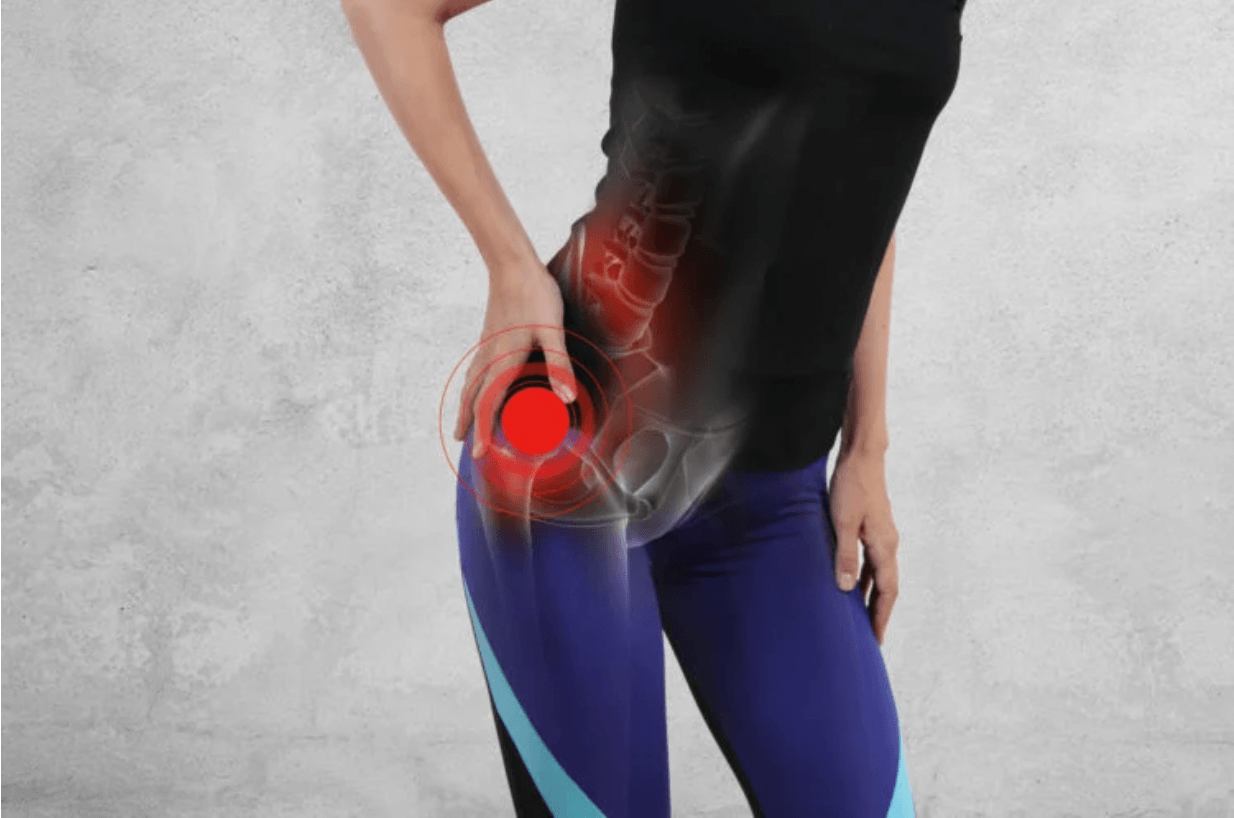Pain in the back of the hip and leg can make completion of everyday tasks difficult and can limit a person’s ability to engage in their favorite activities. One condition that can contribute to this type of pain is Piriformis Syndrome. This article will discuss the pathoanatomical features and symptoms commonly seen with this condition.
What is the Piriformis?
The piriformis is a muscle in the gluteal region of the hip that spans from the greater trochanter of the femur to the lateral aspect of the sacrum. This muscle performs rotation of the femur during hip extension and helps to abduct the femur when in a position of hip flexion. The structure of this muscle can vary from person to person. In some, the piriformis spans over the sciatic nerve which runs down the back of the leg. In others, the sciatic nerve travels through the piriformis muscle itself. Despite the anatomical variation, the proximity to this large nerve is essential in understanding piriformis syndrome and how to correct the dysfunction.
Piriformis Syndrome
Piriformis syndrome occurs when the piriformis muscle compresses the sciatic nerve where these two structures intersect. This compression can cause pain in the gluteal region as well as shooting, burning, or aching pain down the back of the leg. It is common for those who experience chronic hip pain, pain when sitting for long periods, or pain in the buttocks that is worsened by hip movement to experience this condition.
Treatment Options
Initially, short term rest is recommended to limit worsening of any symptoms and allow the involved structures to relax. Over the counter non-steroidal anti-inflammatory drugs (NSAIDs) are often used if there is difficulty managing the pain. Physical therapy is a crucial part of treatment for this condition as physical therapists can identify the problem and prescribe specific stretches to reduce symptoms associated with compression of the sciatic nerve. In addition to this, a therapist can improve strength around the hip and leg to help prevent recurrence of this condition.
If you experience pain, numbness, tingling in the back of the hip and leg, physical therapy can help provide relief. Call Respire Physical Therapy today at 703-671-1871 or click here to schedule an evaluation with a Physical Therapist today to reduce your symptoms and get back to the activities you enjoy!
Tags: choosept, arlingtonva, alexandriava, fallschurchva, Physical Therapy, ptworks, Respire Physical Therapy, physical therapist, piriformis syndrome, sciatica pain, hip pain



